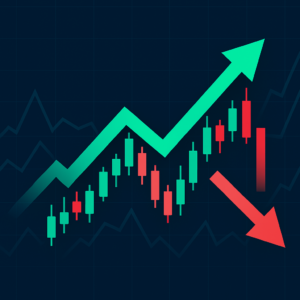Introduction
In the fast-paced world of finance, trading has become an integral part of the global economy. Trading in financial markets involves buying and selling various assets like stocks, bonds, commodities, and currencies to capitalize on price fluctuations and make a profit. It is a challenging endeavor that requires knowledge, skills, and a strategic approach. This article will explore the benefits of trading and how it can potentially enhance your financial future.
1. Diversification and Risk Management
One of the primary benefits of trading is diversification. Investing in various assets can spread your risk across different industries and sectors. In times of market volatility, having a diversified portfolio can cushion the impact of losses. Additionally, trading allows you to implement risk management strategies, such as stop-loss orders, which can protect your investments from significant downturns.
2. Potential for High Returns
Trading in financial markets offers the potential for high returns on investment. Unlike traditional savings accounts, which typically offer low-interest rates, trading can generate substantial profits, especially in booming markets. However, it is essential to remember that higher returns come with higher risks, and careful analysis and research are necessary to make informed decisions.
3. Liquidity and Flexibility
Financial markets are highly liquid, meaning you can buy and sell assets quickly without significantly impacting their prices. This liquidity provides traders with the flexibility to enter and exit positions as per their trading strategies. Whether you are a short-term day trader or a long-term investor, liquidity ensures that your investments are easily convertible to cash when needed.
4. Access to Global Markets
Advancements in technology have made it easier for individual traders to access global markets. With online trading platforms and brokerage services, you can trade in various markets worldwide. This global reach provides opportunities to capitalize on international economic trends and diversify your investments across different regions.
5. Leveraging Financial Instruments
Trading allows you to leverage financial instruments, such as margin accounts, which enable you to control larger positions with a smaller initial investment. While leverage can amplify gains, it can also magnify losses. It is crucial to use leverage judiciously and understand its implications on risk management.
6. Continuous Learning and Growth
Engaging in trading is an intellectually stimulating pursuit that requires continuous learning and adaptation. Successful traders continually analyze market trends, study economic indicators, and develop new strategies to stay ahead of the competition. This quest for knowledge can lead to personal growth and a deeper understanding of financial markets.
7. Independence and Control
Trading provides individuals with a sense of independence and control over their financial decisions. Unlike traditional investment vehicles, where fund managers make choices on your behalf, trading allows you to be in the driver’s seat. This level of control can be empowering as it aligns your investment choices with your risk tolerance and financial goals.
8. Building Wealth and Financial Freedom
For many traders, the ultimate goal is to build wealth and achieve financial freedom. Trading can be a viable path to reach these objectives, but it requires discipline, patience, and a well-thought-out plan. By consistently making informed and strategic decisions, traders can build a substantial portfolio that generates passive income and supports their desired lifestyle.
Conclusion
Trading in financial markets offers numerous benefits for those willing to put in the effort and time to understand the intricacies of the trading world. From diversification and high returns to independence and financial freedom, trading can be a fulfilling and rewarding endeavor. However, it is essential to remember that trading involves risks, and proper risk management, education, and a strong trading plan are crucial for long-term success.
FAQs
1. Is trading suitable for everyone?
Trading can be rewarding but also involves significant risks. It requires a good understanding of financial markets and a willingness to accept potential losses. Therefore, it may not be suitable for everyone.
2. How much capital do I need to start trading?
The amount of capital required to start trading depends on your chosen market and trading strategy. It is advisable to start with an amount you can afford to lose.
3. Can I trade without a broker?
In today’s digital age, online brokerage platforms have made it easier for individual traders to access markets directly without traditional brokers.
4. What are some common trading mistakes to avoid?
Some common trading mistakes include emotional decision-making, overtrading, and not using stop-loss orders. Staying disciplined and sticking to a trading plan can help avoid these pitfalls.
5. How can I enhance my trading skills?
Continuous learning is key to enhancing your trading skills. Engage in educational resources, attend webinars, and study successful traders to improve your understanding of the markets.


